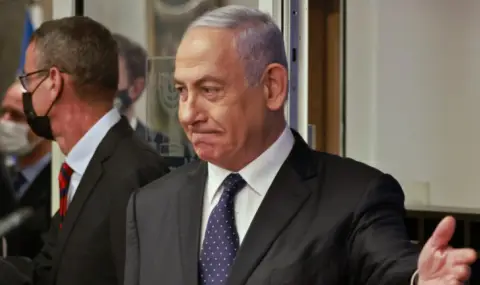The Chairman of the Joint Chiefs of Staff US Armed Forces Gen. Charles K. Brown, America's most senior general, said Israel had not yet shared much of its plans for the Gaza Strip in the "day after" by ending the war with the Palestinian Islamist movement "Hamas", reported Reuters, quoted by BTA.
General Brown's remarks came after Israeli Prime Minister Benjamin Netanyahu's speech to the US Congress, in which he only vaguely outlined a "de-radicalized" post-war Gaza.
"There are not many details that I have been able to see of their plan," General Brown said yesterday at a press conference at the Pentagon.
"It is something we will continue to work with them on," he added.
For months, Washington has repeatedly called on Israel to produce a realistic post-war plan for the Gaza Strip and warned that its absence could spark lawlessness and chaos, as well as the eventual return of "Hamas" in the Palestinian enclave.
US State Department spokesman Matthew Miller also said yesterday that Israel had not provided many details on a plan for the "day after" the end of the war, but the talks continue.
Palestinians have said before that only the end of the Israeli occupation and the creation of a Palestinian state will bring peace.
But in his speech to Congress, Netanyahu made no mention of creating a path to recognizing Palestinian statehood after the Gaza war. It's something he and his far-right coalition staunchly oppose, even after President Biden's administration pressured Israel to back down on the issue.
Meanwhile, US Vice President Kamala Harris received Israeli Prime Minister Benjamin Netanyahu last night for a meeting at the Eisenhower presidential office building. in the White House complex, reported Reuters, quoted by BTA.
The agency noted that the meeting was being watched closely for signs of how Harris might change US policy toward Israel if she becomes president.
Hours earlier, US President Joe Biden called for a ceasefire in the 9-month war in the Gaza Strip in his first face-to-face talks with Netanyahu in the Oval Office of the White House since the president visited Tel Aviv just days after 7 October, when "Hamas" attacked Israel, promising US support.
"We have a lot of things to discuss," Harris said in welcoming Netanyahu, echoing almost verbatim what Biden said in his meeting earlier in the day with the Israeli leader. "We really have,", Netanyahu told her.
As one of the first senior US leaders to call for a ceasefire, Harris should have closely followed the US administration's policy of focusing on the plight of the Palestinians while also supporting Israel's right to self-defense, an official noted. representative of the administration.
White House National Security Council spokesman John Kirby said there were still differences between Israel and the Hamas militants who rule the Palestinian enclave in the quest to achieve a Gaza ceasefire, but "now we're closer than we've ever been before".
"Both sides have to make compromises," Kirby said.
US State Department spokesman Matthew Miller said: "I think the message from the American side in this meeting will be that we have to get this deal done.
Netanyahu's visit coincides with a change in American policy, Reuters commented. On Sunday, Biden, 81, withdrew from the US presidential race under pressure from his fellow Democrats and endorsed Harris for the party's 2024 presidential nomination.
